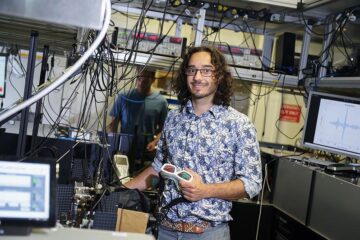Inositolized Phospholipids as Antiproliferative Agents

<strong>Background</strong><br>
Phospholipid analogues with high metabolic stability have been synthesized and proven to be successful as anti-proliferative agents. Due to negative side effects efforts have been made to synthesize phospholipids that are less cytotoxic.<br><br> <strong>Technology</strong><br> We offer a novel class of synthetic phospholipids, a method for preparing the phospholipids and their use for the treatment of proliferating diseases such as psoriasis and cancer. <br><br> The effectiveness of the synthetic ether phospholipid Ino-C2-PAF has been assessed in vitro and in vivo. In vitro studies with cancer cells and keratino-cytes revealed strong anti-proliferative and anti-inflammatory effects. Fur-thermore, in vivo studies in a mouse model of psoriasis (K5.hTGFß) proofed that Ino-C2-PAF has great therapeutic potential without having mutagenic or toxic side-effects. <br><br> Thus, these results position Ino-C2-PAF as an exciting new therapeutic agent for psoriasis.<br><br> <strong>Benefits</strong><br> <ul> <li>strong anti-proliferative and anti-inflammatory effects</li> <li>no mutagenic and no toxic side-effects</li> <li>wide spectrum of application including cancer and psoriasis</li> </ul><br> <strong>IP Rights</strong><br> Patent granted in US, JP, DE, CH, ES, FR, GB, IT (priority 11/2002); <br> Patent pending in CA<br><br> <strong>Patent Owner</strong><br> Charité – Universitätsmedizin Berlin
Weitere Informationen: PDF
ipal GmbH
Tel.: +49 (0)30/2125-4820
Ansprechpartner
Dr. Dirk Dantz
Media Contact
Alle Nachrichten aus der Kategorie: Technologieangebote
Neueste Beiträge

Neue universelle lichtbasierte Technik zur Kontrolle der Talpolarisation
Ein internationales Forscherteam berichtet in Nature über eine neue Methode, mit der zum ersten Mal die Talpolarisation in zentrosymmetrischen Bulk-Materialien auf eine nicht materialspezifische Weise erreicht wird. Diese „universelle Technik“…

Tumorzellen hebeln das Immunsystem früh aus
Neu entdeckter Mechanismus könnte Krebs-Immuntherapien deutlich verbessern. Tumore verhindern aktiv, dass sich Immunantworten durch sogenannte zytotoxische T-Zellen bilden, die den Krebs bekämpfen könnten. Wie das genau geschieht, beschreiben jetzt erstmals…

Immunzellen in den Startlöchern: „Allzeit bereit“ ist harte Arbeit
Wenn Krankheitserreger in den Körper eindringen, muss das Immunsystem sofort reagieren und eine Infektion verhindern oder eindämmen. Doch wie halten sich unsere Abwehrzellen bereit, wenn kein Angreifer in Sicht ist?…

















